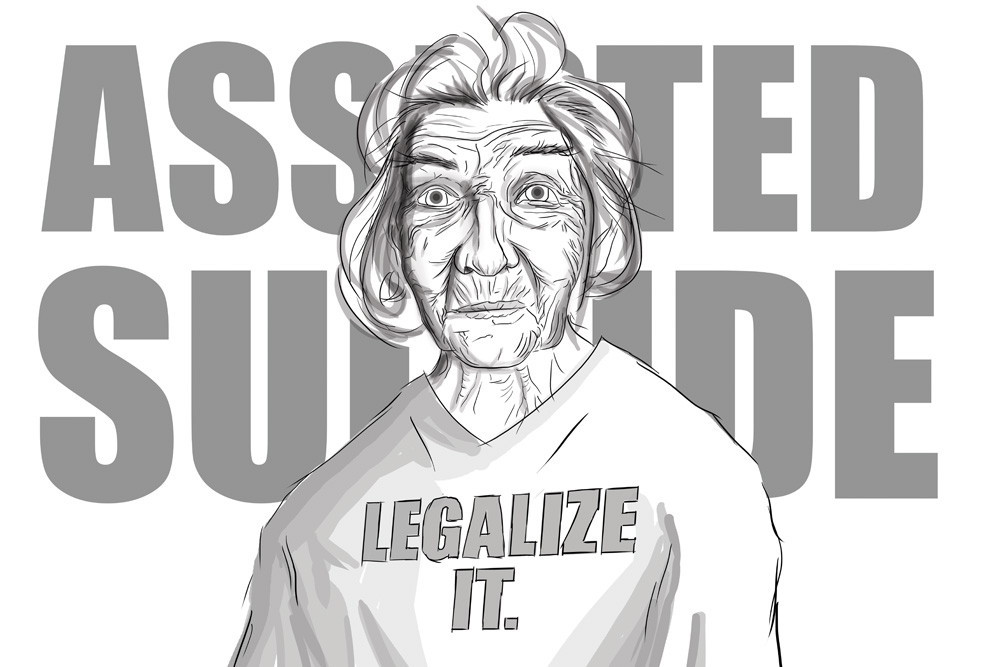Your life, your choice
Why it’s time to end the ban on death with dignity
On New Years Day 2014, 29-year-old Brittany Maynard was diagnosed with brain cancer. After undergoing treatment, it was found that her tumour had grown. Maynard and her family faced a stark reality:
“After months of research, my family and I reached a heartbreaking conclusion: There is no treatment that would save my life, and the recommended treatments would have destroyed the time I had left,” Maynard stated.
And so - facing terminal brain cancer - Maynard ended her life on Nov. 1 by taking medication prescribed by a physician.
Maynard chose to end her life on her own terms and passed away peacefully surrounded by her loved ones. This is legal because she was in the state of Oregon - a state that passed a Death with Dignity Act in 1997, which empowers individuals to make their own end of
life choices.
This issue matters to us, because the Supreme Court of Canada will soon rule on whether Canada’s current ban on dying with dignity is unconstitutional.
The ban means that dying with dignity is currently illegal in Canada. As it stands now, the government criminalizes doctors who help their patients die with dignity. The government denies you the choice that Maynard had.
Ending the ban on dying with dignity in Canada would mean that competent, fully informed and terminally ill patients would have the right to make their own end of life decisions - including medically assisted death - referred to by many as dying with dignity, as it allows people to end their life on their own terms.
While the Supreme Court may strike down the ban on dying with dignity, it is possible that the government - or a future government - could introduce legislation that continues the ban.
That would be unacceptable. While there are legitimate roles for government, denying you the choice of dying with dignity is not one of them. This is a choice that should be up to you, not up to politicians.
Of course, wealthier Canadians can simply travel to jurisdictions where death with dignity is legal. However, since many Canadians cannot afford this cost, the current ban on dying with dignity has created a two-tier system that is unfair, unjust and unequal.
This is the year 2014. More and more we are realizing the importance of respecting individual freedom and autonomy. It is time to extend that respect to our end of life decisions.
As I write this article, I search for the words that can best express my feelings. I find these words, but they are not my own. They are the words of Brittany Maynard, a woman who faced a choice I hope you never have to make, and who sums this issue up better than I ever could:
“I would not tell anyone else that he or she should choose death with dignity. My question is: Who has the right to tell me that I don’t deserve this choice? That I deserve to suffer for weeks or months in tremendous amounts of physical and emotional pain? Why should anyone have the right to make that choice for me?”
Spencer Fernando has been involved in politics at the federal, provincial, and municipal levels. He believes in a “live and let live” philosophy.
Published in Volume 69, Number 11 of The Uniter (November 12, 2014)







